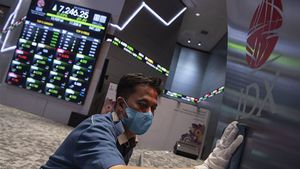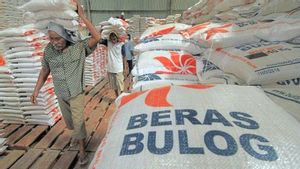JAKARTA - When Eid holidays appear the urge to eat various dishes such as rendang and chicken opor which can increase calorie levels in the body, is this allowed for diabetes (with diabetes)?
Internal medicine specialist from RSUPN dr. Cipto Mangunkusumo dr. Syahidatul Wafa, SpPD recommends food consumption during Eid needs to pay attention to the body's calorie needs.
"Indeed, this is one of the challenges for all of us during holidays, calorie intake is higher than the need, perhaps higher than usual days because the food is delicious. Yes or no (excess calorie consumption) of course the answer is adjusted to the calorie needs," Wafa said in an online discussion session held in Jakarta, quoted from Antara, Saturday, March 30.
Wafa explained that the body of an individual who does not have diabetes has a mechanism that can control calorie intake that enters the body by producing insulin. However, body diabetes cannot produce enough insulin to control calories, triggering an increase in blood sugar levels.
If diabetes is difficult to control its food intake during Eid, Wafa says it can be handled by increasing the dose of drugs or insulin.
"For example, if someone gets drugs that drink, there is a possibility that the dose needs to be increased, especially those who get insulin. If you get insulin, for example, if you eat more than usual, the insulin dose can be increased so that the blood sugar is not too high," Wafa explained.
Wafa advised to consult a doctor first before adjusting the dose of diabetes drug so that the dose received remains in accordance with the needs of the diabetes body.
SEE ALSO:
"It is better for diabetic patients to have a special consultation with a doctor so that the adjustment of this drug can be appropriate because each patient has different dose adjustments for the medicine and the time to eat the medicine, according to blood sugar control," said Wafa.
However, Wafa still recommends controlling food intake as much as possible during Eid holidays because the increase in blood sugar is significantly dangerous for diabetes health.
"High blood sugar can cause complications, what complications can occur? Hyperglycemia or very high blood sugar, for example, can be above 300 mg/dl, especially if there is dehydration it can trigger oversight," said Wafa.
The English, Chinese, Japanese, Arabic, and French versions are automatically generated by the AI. So there may still be inaccuracies in translating, please always see Indonesian as our main language. (system supported by DigitalSiber.id)
















